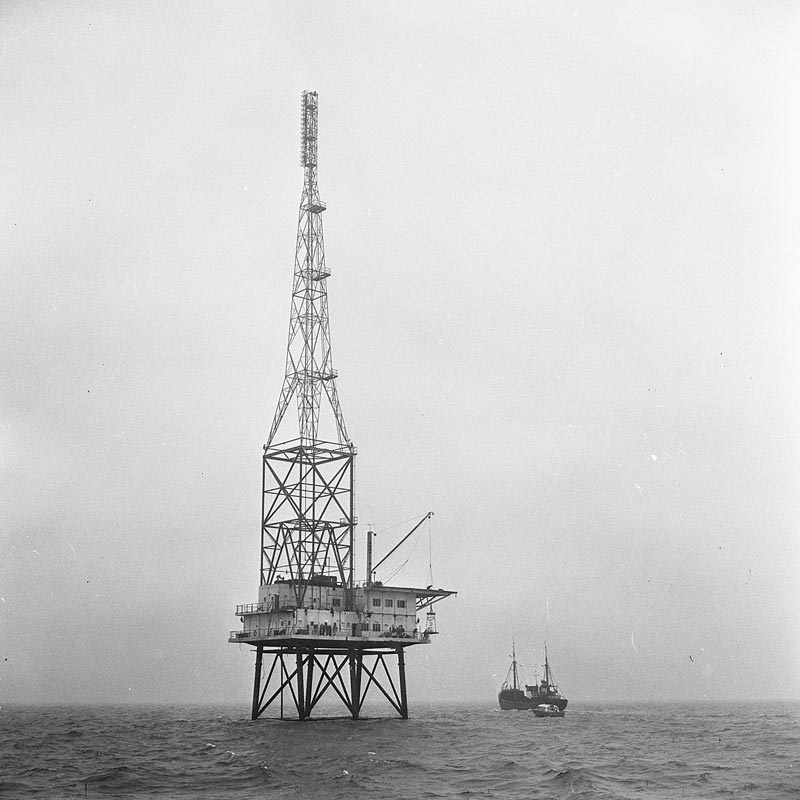The history of British music broadcasting would be incomplete without mentioning the thrilling and rebellious era of pirate radio. Set sail off the coast of England, pirate radio stations emerged in the 1960s, delivering unfiltered and non-mainstream music to eager listeners. This blog delves into the fascinating world of pirate radio, showcasing its hit songs, iconic artists, and the renegade DJs who defied the establishment and conventional broadcasting norms of the day.
The Birth of Pirate Radio
In the 1960s, the BBC held a virtual monopoly on radio broadcasting, favouring a conservative playlist and limited airtime for popular music genres such as rock and roll, rhythm and blues, and later, early British rock. Pirate radio arose as a response to this cultural vacuum, with the first offshore station, Radio Caroline, launching in 1964, followed by Radio London and Radio Luxembourg. Anchored on ships or sea forts, these rogue stations broadcasted from international waters to evade British laws that restricted non-BBC broadcasts.
Hit Songs and Artists of the Pirate Radio Movement
Pirate radio stations gave rise to a new wave of music that connected with the youth and the counterculture of the time. Hit songs that defined this era included The Rolling Stones' "I Can't Get No Satisfaction," The Who's "My Generation," and The Kinks' "You Really Got Me." These iconic tracks, along with others from artists like The Beatles, Jimi Hendrix, and Pink Floyd, found a home on pirate radio, catapulting them to widespread popularity.
Iconic Artists of Pirate Radio
Pirate radio not only embraced established artists but also championed emerging talents. The pirate airwaves gave birth to the "British Invasion," introducing the world to bands like The Dave Clark Five, The Hollies, and The Animals. The likes of John Peel and Kenny Everett played pivotal roles in unearthing unsigned bands and underground music, further enriching the diverse soundscape of pirate radio.
Legendary Pirate Radio DJs
Pirate radio's success was largely due to its charismatic and daring DJs who possessed an intimate connection with their listeners. Tony Blackburn, known as the "soul captain," played soul and R&B hits, while Johnnie Walker earned a reputation for his smooth voice and knowledge of rock music. The witty and rebellious Kenny Everett became an icon for his anarchic broadcasts. These DJs carved their places in radio history and continued their careers even after the crackdown on pirate stations in the 1960s.
The Government Crackdown and Legacy
As pirate radio's popularity soared, the British government grew concerned about its unregulated broadcasts and interference with the BBC. In 1967, the Marine Broadcasting Offences Act effectively shut down most offshore pirate radio stations. However, the impact of pirate radio on British music culture was indelible. The movement had already laid the foundation for the rise of independent local radio and fuelled the demand for diverse musical content.
Conclusion
Pirate radio off the coast of England was a trailblazing movement that challenged the status quo in the music broadcasting industry. The rebellion, innovation, and passion of these unlicensed broadcasters left an everlasting impact on British music culture. From iconic songs and legendary artists to renegade DJs who dared to defy censorship, the pirate radio movement ignited a musical revolution that continues to inspire broadcasters and musicians to this day.




Share:
Rediscovering the Magic of Vinyl Sound
Acoustic Energy Corinium